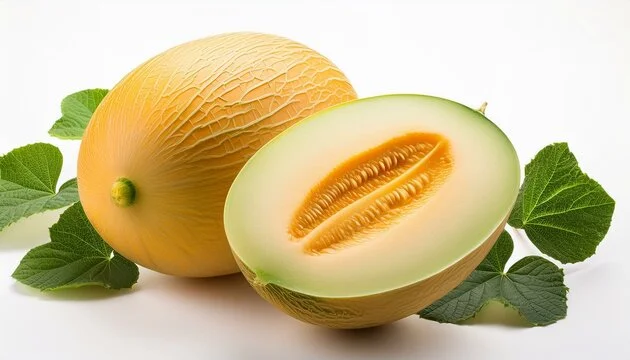Optimal Hydration
The high water content in melons, such as watermelon and cantaloupe, which comprises approximately 90% of their composition, makes them an ideal choice for maintaining hydration, particularly in warm weather conditions. Adequate hydration is essential for various bodily functions, including thermoregulation, joint lubrication, and nutrient transport. Consuming melons can contribute significantly to meeting daily fluid intake requirements, thereby mitigating the risk of dehydration.

High in Nutritional Value
Melons are an excellent source of essential nutrients, featuring cantaloupe as a prime example, which offers vitamin C, vital for immune system function, and vitamin A, in the form of beta-carotene, crucial for vision and skin health. Honeydew melon provides vitamin B6 and folate, essential for brain function and red blood cell production. Additionally, melons are a good source of potassium, a mineral that helps regulate blood pressure and supports cardiovascular health.

Redox Balancers
Melons are an abundant source of antioxidants, which provide essential protection against cellular damage caused by free radicals. Free radicals are unstable molecules that can lead to oxidative stress, resulting in chronic diseases such as cancer and heart disease. Watermelon, for example, boasts lycopene, a powerful antioxidant linked to a reduced risk of certain cancers and heart disease. Cantaloupe is high in beta-carotene, an antioxidant that also supports eye health.

Limited Caloric Intake
For individuals monitoring their caloric consumption, melons are an exemplary selection. Their natural low-calorie composition renders them an guilt-free snack option. For instance, a single cup of diced watermelon contains a mere 46 calories, whereas an equivalent serving of cantaloupe boasts approximately 53 calories, making melons an ideal choice for those striving to achieve or maintain a healthy weight without compromising flavor or satiety.
Fosters Healthy Heart Function
Melons’ potassium content plays a vital role in heart health, counteracting sodium’s effects and regulating blood pressure. A diet rich in potassium, found in melons, can lower hypertension and stroke risk, while antioxidants like lycopene and beta-carotene reduce inflammation and protect blood vessels from oxidative damage.
Health of the Digestive System
The consumption of melons, which are an excellent source of dietary fiber, is essential for maintaining optimal digestive health, as fiber facilitates regular bowel movements, prevents constipation, and supports a healthy gut microbiome by providing sustenance for beneficial gut bacteria, ultimately reducing the risk of digestive disorders like IBS and diverticulitis.
Epidermal vitality
The vitamin and antioxidant content in melons has beneficial effects on skin health. Cantaloupe is an excellent source of vitamin C, necessary for collagen production, maintaining skin firmness and youthfulness. Beta-carotene, another melon antioxidant, safeguards against sun damage and enhances skin tone. Regular melon consumption results in a healthy, luminous complexion.
To Conclude
Including melons in your diet offers numerous health advantages, encompassing hydration, nutrient intake, cardiovascular well-being, and digestive health. Their low-calorie count renders them an optimal snack for weight control, while their antioxidant-rich profile supports overall wellness. Whether consumed independently, in a fruit medley, or as a component of a revitalizing smoothie, melons constitute a nutritious and flavorful addition to any dietary regimen. Do you have a preferred method of consuming melons?
